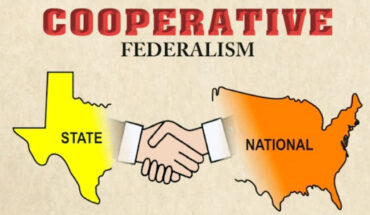Farmers’ unions under the umbrella of Samyukta Kisan Morcha (SKM) are criticising the newly issued draft of ‘National Policy Framework on Agricultural Marketing’ (NPFAM) at every nook and corner. SKM has organised a massive rally at Tohana, Haryana on January 4, to oppose this draft policy and appealed to all the Gram Panchayats to send letters to the Central government against the ruinous draft demanding its withdrawal forthwith.
NPFAM draft which the farmers leaders describe as revival of the three farm laws which the Modi government was forced to repeal following the 13-month historical agitation in 2020-21.
Jogender Ugrahan, a farmer leader, exhorted the farmers to grasp the link between the corporate model of IMF-WTO and the just released draft of the NPFAM by the Modi government. He said that a powerful movement will have to be unleashed by mobilizing even more strength than the 2020-21 movement at the borders of the national capital.
SKM, in a release on January 3, had also accused the newly introduced National Policy Framework on Agriculture Marketing (NPFAM) Framework of the NDA3 Government as more dangerous than the 3 repealed Farm Acts of the NDA2 Government. “The Policy Framework, if implemented, will erode the federal rights of the State Governments and destroy the interests of the farmers, agricultural workers, petty producers and small traders since there is no provision to ensure MSP and Minimum Wage to farmers and workers respectively.”
What’s stand of the government about the draft of the NPFAM Policy?
On 25th November, 2024, Government of India issued a Draft of ‘National Policy Framework on Agricultural Marketing’ for public comments /suggestions. Department of Agriculture and Farmers’ Welfare (DA&FW), Ministry of
Agriculture and FW, Govt. of India on 25th June, 2024 constituted a Drafting Committee under the chairmanship of Faiz Ahmed Kidwai, IAS, Additional Secretary (Marketing), DA&FW. The Drafting Committee has prepared a draft “National Policy Framework on Agricultural Marketing.”
What it says — “Though in the last 10 years agriculture income has increased annually @ 5.23 % against a growth rate of 6.24% in the non- agriculture sector and 5.80 % in the economy overall; thus, the difference in the growth rate of income in the agriculture and non-agricultural sector is small. The data indicates that the accelerated agricultural growth during the last two decades has been a result of diversification towards horticultural crops, livestock and fisheries, as fisheries experienced the highest growth of 9.08 % in value of output followed by the livestock sector at 5.76 % and the crop sector 2.34 % per year. In spite of all this, this is a matter of concern that farmers, especially small and marginal ones are still not able to draw the benefit of bumper production and growth in the agriculture sector and income as well. A substantial gap in rural and urban economy is still visible and a large section of farmers is still struggling for optimum income. Among the major reasons identified are high fragmented landholding, high cost of production, lack of demand driven production and accessibility to good markets and optimum realization of
value for their produce. Integrated output management with application of digital public infrastructure like block-chain technology, use of innovations, capacity building through proper skilling and professionalism are the critical areas for consideration to improve farmers’ income with transparency and ease. The policy identifies the pockets of satisfaction and areas for improvement as well and also modalities for improvement in possible uniform manner.”
It further adds, “Vision of National Policy Framework is to build a vibrant marketing ecosystem in the country wherein farmers of all category find a market of their choice to realise best price for their produce, to be accomplished through improved efficiency, enhanced competition with multiple marketing channels & no monopsony market structure, transparency, infrastructure and adoption of innovative digital technology and also agri value chain-based marketing.”
Why are the Indian farmers’ unions opposing NPFAM?
On the other hand, SKM, the largest alliance of Indian farmers’ unions, is accusing the newly introduced National Policy Framework on Agriculture Marketing (NPFAM) of the NDA3 Government as more dangerous than the 3 repealed Farm Acts of the NDA2 Government. SKM fears – “The Policy Framework, if implemented, will erode the federal rights of the State Governments and destroy the interests of the farmers, agricultural workers, petty producers and small traders since there is no provision to ensure MSP and Minimum Wage to farmers and workers respectively.”
SKM states that the main proposal is fundamental restructuring of the existing agricultural marketing system, proposing its transformation into a Unified National Market (UNM) linked to a Value Chain Centric Infrastructure (VCCI). The objective is the entry of Corporate Agribusiness to convert 7057 registered markets and 22931 Grameen Haats across India to be integrated with Digital Public Infrastructure. This proposal aligns closely with the perspectives of the World Bank and International Finance Capital (IFC) regarding the value chain as “the full range of value adding activities required to bring a product or service through the different phases of production including procurement of raw materials and other inputs”.
This is precisely the goal outlined in the NPFAM: to integrate agricultural production and marketing in a way that prioritizes corporate interests over the welfare of small producers and farmers.
The proposed reforms are aimed at redesigning a value chain-based capacity-building framework to integrate both the private and public sectors through advanced technologies such as Digital Public Infrastructure (DPI), blockchain, machine learning, and artificial intelligence (AI). However, these reforms also propose deregulation, effectively allowing the private sector—specifically, corporate agribusinesses—to establish dominance over production, processing, and marketing.
The Farmers’ union elaborates that the ‘Farmer Producer Organizations’ (FPOs) are envisioned as key players in this system, tasked with bypassing middlemen and traders to ensure a smooth and direct supply of raw materials to corporate industries, trade, and export channels. This approach risks consolidating control within large corporations, potentially marginalizing small producers and limiting their bargaining power in the market.
Government’s draft policy pleads that capacity building through proper skilling and professionalism are the critical area for consideration to improve farmers’ income with transparency and ease; whereas the SKM counters that the root cause of the acute income crisis faced by farmers cannot be resolved through technical reforms alone such as value chains or block chain technology. The agrarian crisis is fundamentally social and political, stemming from class contradictions. Farmers produce raw materials that enter markets controlled by processing industries, trade houses, and exporters, who in turn dictate the prices. However, the policy document fails to address any provisions that would hold these corporate forces— including processors, traders, and exporters— accountable for sharing a fair portion of the surplus they extract from the market.
The major point of concern for farmers is that there is no mention of ensuring a remunerative minimum support price (MSP) for farmers, which was a central recommendation of the National Commission on Farmers (NCF), chaired by the late M S Swaminathan, and currently a key issue in the national political discourse.
It is also fearing the unions that the proposed reforms seek to encroach upon the rights of State Governments over agriculture, land, industry, and markets—areas that fall under the State list as per the Constitution of India. The National Policy Framework on Agricultural Marketing (NPFAM) is not a stand-alone initiative but is deeply intertwined with other pro-corporate reforms, including the Goods and Services Tax (GST) Act, the Digital Agriculture Mission, the National Cooperation Policy, Imposing 4 Labour Codes and the One Nation One Election Bill, among others.
The Farmers’ unions doubt that the NDA3 Government led by the BJP-RSS combine – under the influence of corporate forces and the World Bank – through the NPFAM has proposed to erode the federal rights of State Governments. The policy facilitates the domination and control of multinational corporations (MNCs) and International Finance Capital over domestic agricultural production and the food industry, thereby threatening India’s food security and compromising its sovereignty with the slogan of “One Nation One Market”.
SKM demands that it is crucial for all political parties to clarify their stance on the proposed NPFAM, as it has the potential to transform India from a Federal Republic of Union Government with autonomous State Governments into a Unitary Nation, with an authoritarian Central Government with subordinate State Governments under the control of corporate interests and international finance capital.
SKM appeals all State Governments and the Chief Ministers including those belongs to NDA to reject the same and demand democratic discourse involving all the stockholders including farmers, workers, petty traders, industrialists and exporters to develop alternative policy framework afresh based on cooperation of farmers and petty producers that will safeguard the interests of the people and the country.
How will the NPFAM have an adverse effect on the present system?
SKM leader and All India Kisan Sabha (AIKS) National Vice-President, Dr. Inderjit Singh states, “The NPFAM provides for permitting private markets to make bulk purchases and bulk stocks in silos and warehouses. No market fees or taxes on these private markets. They will be able to purchase at the rates slightly higher than the present Agricultural Produce Market Committee (APMC), which is an autonomous body established by the government to ensure a fair price for farmers. In due course APMC dependent on fees and taxes will be rendered irrelevant and finally closed affecting not only farmers but Arhtias, Munims, Palledars and other workers without any livelihood.”
Dr. Inderjit Singh adds- “All sections of farmers from small to bigger as well as the poor consumers are sure to be adversely affected once the agricultural marketing is taken over by the corporate companies.”
Dr. Singh suggests that instead of demonising the widespread network of market committees and doing away with it what is actually needed is to make them efficient with improved infrastructure, making farmers genuine participation through democratic functioning and bringing in more transparency and accountability.
Will the central government bow down?
However, the Farmers’ Unions are bent upon to press the central government for withdrawal of the draft policy and planning for the battle with more strings than the 2020-21 agitation, which succeeded in repealing the three anti-farmer laws after a 13-month long dharna at Delhi’s doorstep, but this time the central government doesn’t seem to be in the mood of accepting the demands of the farmers, which is clearly evident from the unheeding attitude of the government towards Dallewal’s fast-unto-death going on since November 26. Not to talk of the acceptance of farmers’ demands, the government is not even ready for the dialogue. It is pertinent to mention here that the two major factions of farmers under the banner of Samyukta Kisan Morcha (Non-Political) and Kisan Majdoor Morcha (KMM) are on agitation since February 13,2024 for pressurising the central government to accept farmers demands, including Minimum Support Price (MSP) for their agricultural produce and their leader Jagjit Singh Dallewal is on hunger strike, but despite his fast-unto-death going on for more than 40 days , the central government is not even ready to dialogue.
Jag Mohan Thaken is a Senior Journalist, Columnist & Political Analyst, views are personal





